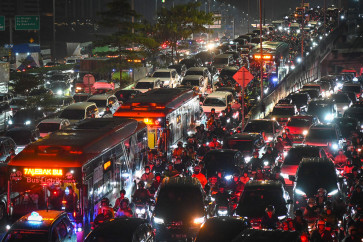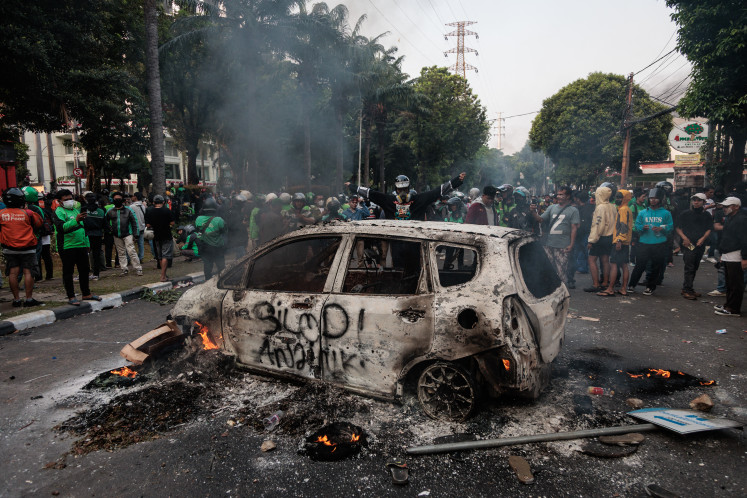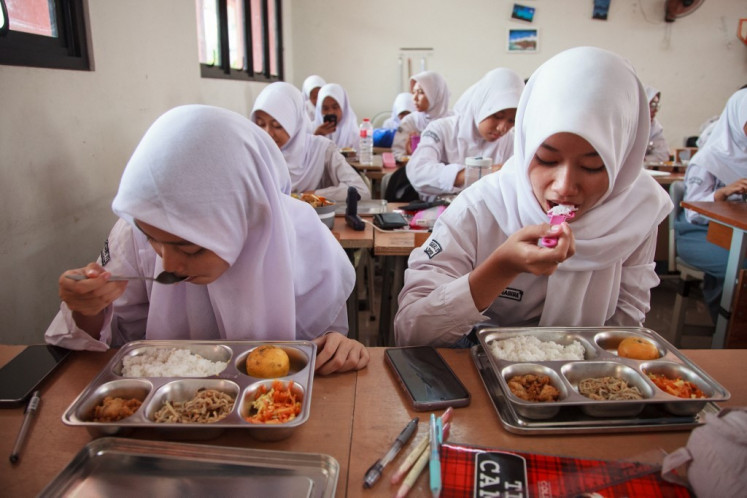Popular Reads
Top Results
Can't find what you're looking for?
View all search resultsPopular Reads
Top Results
Can't find what you're looking for?
View all search resultsHelp terror convicts start a new life, govt told
The government is apparently still in the dark over how to handle ex-militants after they were arrested and prosecuted, analysts and former militants said
Change text size
Gift Premium Articles
to Anyone
T
he government is apparently still in the dark over how to handle ex-militants after they were arrested and prosecuted, analysts and former militants said.
Last Tuesday, the South Jakarta District Court sentenced Rohmat “Bejo” Puji Wibowo to seven-and-a-half years in prison for his involvement in last year’s attack on the JW Marriott and Ritz-Carlton hotels in Jakarta.
He had earlier served three years for his involvement in the bombing of the same JW Marriott in 2003.
Presiding judge Samsudin told the trial, “Bejo’s previous time in prison failed to open his eyes to the dangerous nature of terrorism.”
A day later, police arrested Abdullah Sunata, one of the most-wanted terror fugitives, a year after he was released from prison for “good behavior” in 2009. He had been sentenced to seven years in prison in 2006 for harboring Noordin M. Top.
Former terrorist Umar Abduh, who now works as a researcher, criticized the government’s lack of attention to rehabilitation programs.
“The government has been too busy exchanging fire with militants and forgot to treat them as part of the family,” he told The Jakarta Post over the weekend.
Before moving into research, Umar Abduh was widely known as a member of the jihad command, which was blamed for the 1981 Garuda Airlines hijacking at Thailand’s Don Muang airport.
The government said it planned to set up the National Agency on the Eradication of Terrorism to take a comprehensive approach to the issue, but it remains unclear how it would work. The government’s antiterror strategy is currently centered around the police’s Detachment 88 counterterrorism unit, which has been lambasted for often killing cornered terror suspects.
University of Indonesia criminologist Erlangga Masdiana said that as of today, the government would take a normative approach to handling convicted terrorists.
“The government should be able to offer a different approach in dealing with these convicts, such as providing them time to mingle with people from different backgrounds,” he said.
Noor Huda Ismail, a journalist turned activist who assists convicted terrorists through reconciliation, concurred, saying that assisting militants in facing their everyday lives in a different environment could be meaningful.
Huda said a different environment would also open these ex-terrorists to the idea that there was no such thing as “ideological problems” in daily life.
“I provide them enough space to reconcile their militancy and ideological thoughts by asking them to mingle with people with different religious backgrounds. As a result, they begin to see the world from a different perspective,” he said.
Through the Prasasti Perdamaian Foundation, Noor Huda now assists 10 ex-terrorists in building a new life after serving long sentences.
“Maybe deep down, they are still militant. But at least for now, they are keeping a distance from violence,” he said.










